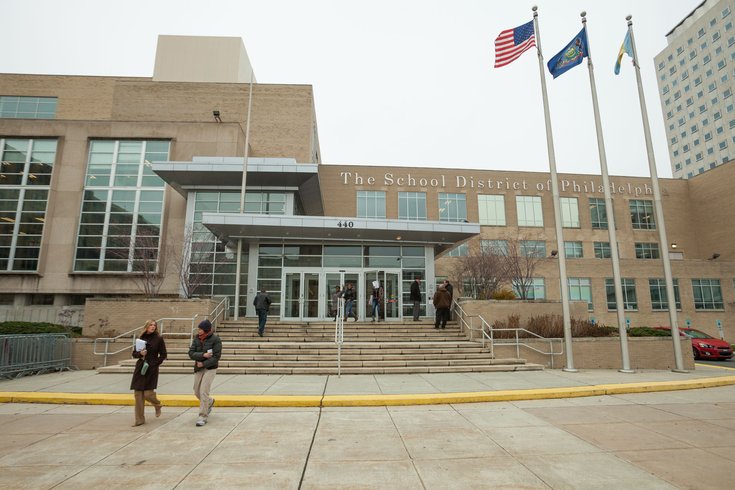
June 21, 2015
 Thom Carroll/PhillyVoice
Thom Carroll/PhillyVoice
The School District of Philadelphia headquarters on North Broad Street.
The School District of Philadelphia received a $70 million bailout in a Thursday vote by City Council, but some of that funding may already be in question due to concerns about how the money will be spent.
In April, the SDP posted a request for proposals seeking bids from contractors to provide substitute teachers that would fill 400 empty classrooms every day. After the City Council vote, the School Reform Commission voted unanimously on a $34 million contract to outsource substitute teaching jobs to Camden-based Source4Teachers, according to Watchdog.org.
That decision, along with discussions to outsource school nurse jobs as well, may compromise some of the $70 million package from City Council, which is made up of $50 million from a 4.5 percent property tax increase, $10 million from a parking tax increase, and $10 million from raising the Use and Occupancy Tax on businesses.
In three months, City Council will reportedly reconvene to review funding in light of the school district's working budget for next year, which is due by the end of June.
While the SDP argues outsourcing substitutes and nurses will cut costs and improve the quality of education, the Philadelphia Federation of Teachers remains opposed to outsourcing union jobs.
Other funding sources may still emerge from reform at the state level, where Governor Tom Wolf has proposed $159 million in new funding for Philadelphia schools. This past week, state lawmakers received recommendations from the bipartisan Basic Education Funding Commission, which was created to evaluate and propose a new funding formula for Pennsylvania schools. The commission submitted an 8-page proposal that could result in an overhaul of school funding.
Recommendations from the report point to a formula that would accounts for a statewide mix of student-based factors (student count, poverty, English Language Learners, and charter school enrollment) and school district-based factors (sparsity-size adjustment, median household income, and local effort capacity index, i.e. potential to generate tax-related revenue).
The report notes the higher proportion of economically disadvantaged students in Philadelphia, which the SDP accounted for when completing a Commission survey. A decline in student population, in part due to more charter school enrollment, was also mentioned among several factors that will affect the application of the proposed formula.
Specifically, the SDP described some of its challenges and needs relative to a comparatively low per-student base amount worked into the state's funding calculations:
Currently, owing to the low base amount, the District must create combined classes in grades 1-3, i.e., in some schools our 1st grade and 2nd grade students must share the same teachers, our 2nd and 3rd grade students must share the same teachers, we would not consider this as providing adequate resources to support our students. Similarly, the District currently utilize grant resources to provide for Kindergarten programming as state and local policy does not require the provision of kindergarten education; SDP would like to provide universal kindergarten with general operating funds and, as a result, we need the base funding to increase. Furthermore, the District has yet to be able to fully staff our high schools in a manner that would truly facilitate the least restrictive learning environment for students with individualized learning plans.
Read the full Basic Education Funding Commission report here.
